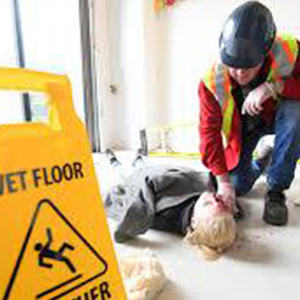
Occupational Health is a science that looks at preventing and mitigating against any harmful effects of the environment to the worker. It uses various protocols to ensure the safety of the worker.
In order to achieve occupational health the Occupational Health and Safety Act No.85 of 1993 has prescribed that “medical surveillance” be carried out in workplaces where employees are exposed to various hazards.
Medical Surveillance involves periodic examination of employees by an occupational health practitioner. These examinations include clinical examinations, biological monitoring or medical tests. The tests are required for the early identification of conditions that could present an increased risk of adverse health effects related to the task being performed which is referred to as an Occupational Illness.
An Occupational Illness is anything that affects the health and general well-being of a worker. This could be:
- Traumatic
- Psychological
- Disease related
WHY WE NEED MEDICAL SURVEILLANCE
 The goal of medical surveillance is to ultimately reduce and prevent occupational illness and injury throughout any working environment. For several industries legislation has prescribed those employees performing specific tasks must have medical surveillance tests done before any work can be performed.
The goal of medical surveillance is to ultimately reduce and prevent occupational illness and injury throughout any working environment. For several industries legislation has prescribed those employees performing specific tasks must have medical surveillance tests done before any work can be performed.
Workers who are exposed to the following hazards need to have medical surveillance: noise, asbestos, certain chemicals, certain biological agents and lead. The workers’ health status must be established when they start to work in an environment where they are exposed to particular hazards.
Screenings help employers see if injuries are self-inflicted by employees not taking care of themselves, or if they are work related.
Surveillance monitors your employees and helps to compare their health from year to year. It helps to see what type of intervention needs to take place within your company in order to keep your employees healthy and safe.
Helps you learn which employees should be in “high risk groups” which show they already had prior risk to disease or dysfunction, and need proactive surveillance.
Another benefit of the surveillance tests is to be able to monitor if the company’s prevention and control measures are working effectively. And to determine if there are any hazards that need to be removed or controlled more effectively.
WHO NEEDS MEDICAL SURVEILLANCE TESTS
 a) Employees entering the workplace for the first time:
a) Employees entering the workplace for the first time:
Entry medicals are often required by companies for specific jobs and are essentially a health screening check to ensure you as an individual are in good health and able to perform the required job effectively and safely.
b) Construction workers:
Our construction medicals are conducted as per regulations set out in the Occupational Health and Safety Act 85 of 1993 as well as the new Construction regulations 7 February 2014. Under the new Construction regulations, all construction workers need an occupational medical certificate of fitness specific to the construction job to be performed.
- Working on suspended scaffolding or at heights
- Workers that may be affected by the use of solvents or oils or similar materials.
- All workers who undertake roof work, tower crane operators, operators of construction vehicles and mobile plant must be declared physically and psychologically fit
- Working in confined spaces
c) Drivers:
Both code 8 and code 10
d) Specific Industries:
- Mining
- Aviation
- Manufacturing
- Engineering
- Health Workers
- Tourism
- Agriculture
e) Contractors:
Any company sending their employees to perform any tasks at the sites of the any of the above industries must ensure that these employees have medical certificates.
OUR MISSION STATEMENT
We strive to maintain employee health, minimise the impact of illness/injury through prompt and appropriate medical management and support early, and effective rehabilitation to work thus enabling our Client Companies to maintain maximum efficiency and productivity.
Our focus on 'prevention rather than cure' seeks to pre-empt illness with robust Health surveillance programmes and good health promotions initiatives. We provide evidence-based, validated, Occupational Health services, continuous professional development.
The primary function of Occupational Health is to aid in the early detection and intervention for work related injury or illness. Occupational Health also ensures that ill or injured employees are supported in maintaining their ability to work. Occupational Health monitors the effect of work on employee health and the effect of employee health on work.
GOAL
To ensure Worker Wellness which requires a holistic approach which seeks to encourage and nurture healthy lifestyles and attitudes along with individual empowerment and coping mechanisms.
